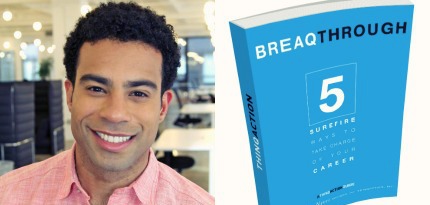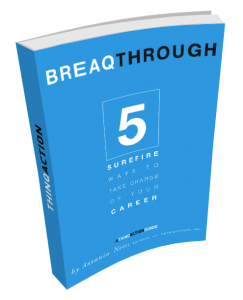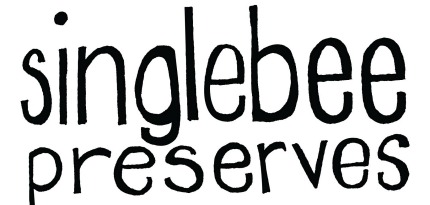Celebrity deaths never impacted me until the June 26 passing of beloved writer Nora Ephron. Most fans know Ephron from her female-focused film hits, including “Sleepless in Seattle,” “You’ve Got Mail,” “Julie and Julia,” and “When Harry Met Sally.”
And although I, too, covet those cinematic moments, it is Ephron’s writing that grabbed my heart and never quite let go.
The memory for me is crystal clear, burned on my brain like a literary brand. For months I had struggled with what kind of book I should write. Fiction fell flat. Could simple stories suffice?, I thought to myself on countless occasions.
My newspaper background meant I was trained (and so very much loved) the art of storytelling. Collecting information. Observing my surroundings. Discovering meaning. And try as I might, the words simply would not come.
Then, on a weekday whim, I visited a used book store. Hungry for something new, I paced up and down the aisles, plucking titles that grabbed my attention or authors whom I recognized. Walking toward the front of the store, I stumbled upon a stack of books that were deeply discounted. The three-dollar sale sticker certainly made painless my purchase of Ephron’s 2006 collection of essays I Feel Bad About My Neck and Other Thoughts on Being a Woman. The book landed in my shopping bag along with a few other titles that, today, I am unable to recall.
A few days later – a Saturday afternoon – I found myself at home. Pawing through my recent literary purchases, I picked up Ephron’s book and sat down on my plush living room couch. Within the first few essays in this delicious book, I found myself rolling, literally rolling, with laughter. Multiple passages were so acutely precise in their telling, the feelings behind womanhood so strikingly spot-on. My giggles and belly laughs turned to tears of joy, I kid you not, as I moved through the book. In the few short hours that passed like seconds, I concluded two things.
1. Nora Ephron’s personal essays should be required reading for all women. Of course her films are largely blockbuster hits, and of course those titles will remain on best-of lists for years to come. But her writing? Her writing evokes an honesty: humor mixed with wit. Ephron brings you close with her hilarity, yet the tender tellings of her more emotional (and less funny) moments bring you even closer. It is through her sense of humor that Ephron has readers belly-laughing one minute, and quietly reflecting the next.
2. I have finally discovered the kind of book I am able to write. The tears I shed during the first reading of I Feel Bad About My Neck cannot be overstated. Truly, truly tears of joy. For, at last, I had stumbled upon an engaging and effervescent literary style which I not only enjoyed, but could also identify exact inspiration. Here was a book that I loved reading; which meant writing a similar book could be as enjoyable an experience (although not, of course, without hours and hours spent at my keyboard).
That hardbound copy of I Feel Bad About My Neck traveled with me everywhere in the days and weeks that followed. Dissecting Ephron’s essays became my life’s work. How did she tell her stories? What details did she include? At what point did her words take a turn to the serious? I paged through and paged through each line of copy, putting myself in dual roles of writer and editor. Poring over Ephron’s words made me love the woman and her work even more.
Ephron’s literary catalogue quickly became my second research project, and I found copies of her other works. Some fiction, some personal essays, others written for national publications. Each piece taught me something new: about the craft of writing, the art of storytelling, and Ephron herself. But not since I Feel Bad About My Neck had such an emotional reaction to a book taken hold.
Then, in 2010, Nerdy Thirty, my first book, was published. What a thrill it was to share my stories in a printed, lasting form. To honor Ephron and her inspiration, I sprinkled quotes from her throughout the book. It was indeed her work that helped shape my first book. For that, I am forever grateful to Ephron’s legacy as a writer.
When I learned of Ephron’s recent death at age 71, I cried again. Call me crazy, but radio and television reports celebrating and remembering Ephron were simply too much to digest. Written eulogies were all I could handle, all I can still handle.
My three-dollar hardbound edition of I Feel Bad About My Neck still sits among Ephron’s other titles on my bookshelf at home. Its spine is worn, multiple pages dog-eared here and there. Even when closed I can feel the energy and humor inside the pages, and will undoubtedly turn to them for inspiration, motivation, and education for years to come – and, possibly, when I start feeling bad about my own neck.
Ephron’s Epiphanies
Often hilarious and at times heartfelt, the late Nora Ephron crafted kernels of advice on life, love, growing old, and even cooking. Here are some of the most memorable from her 2006 collection of essays I Feel Bad About My Neck and Other Thoughts on Being a Woman.
“This (advice) is for women who in mid-July realize they still haven’t bought a summer purse or who in midwinter are still carrying around a straw bag.”
– From the essay “I Hate My Purse”
“There’s a reason why forty, fifty, and sixty don’t look the way they used to, and it’s not because of feminism, or better living through exercise. It’s because of hair dye. In the 1950s only 7 percent of American women dyed their hair; today there are parts of Manhattan and Los Angeles where there are no gray-haired women at all.”
– From the essay “On Maintenance”
“I can’t believe how real life never lets you down. I can’t understand why anyone would write fiction when what actually happens is so amazing.”
– From the essay “The Story of My Life in 3,500 Words or Less”
“I fly to New York to see my shrink. I walk into her office and burst into tears. I tell her what my husband has done to me. I tell her my heart is broken. I tell her I’m a total mess and will never be the same. I can’t stop crying. She looks at me and says, ‘You have to understand something: You were going to leave him eventually.’ ”
– From the essay “The Story of My Life in 3,500 Words or Less”
“Don’t cover a couch with anything that isn’t more or less beige.”
“You can’t be friends with people who call after 11 p.m.”
“The plane is not going to crash.”
“Anything you think is wrong with your body at the age of thirty-five you will be nostalgic for at the age of forty-five.”
“Write everything down.”
“You can’t own too many black turtleneck sweaters.”
“There’s no point in making piecrust from scratch.”
“The reason you’re waking up in the middle of the night is the second glass of wine.”
“If only one third of your clothes are mistakes, you’re ahead of the game.”
– From the essay “What I Wish I’d Known”
Editor’s note: “Nora Knew Best” was originally written for COOP, an online lifestyle publication produced by Birdhouse Interior Design.














